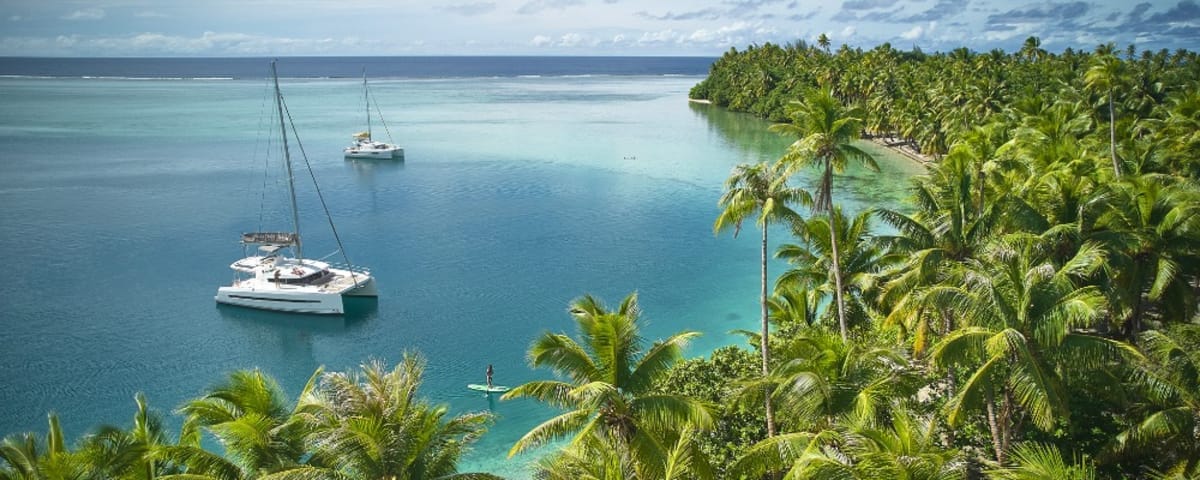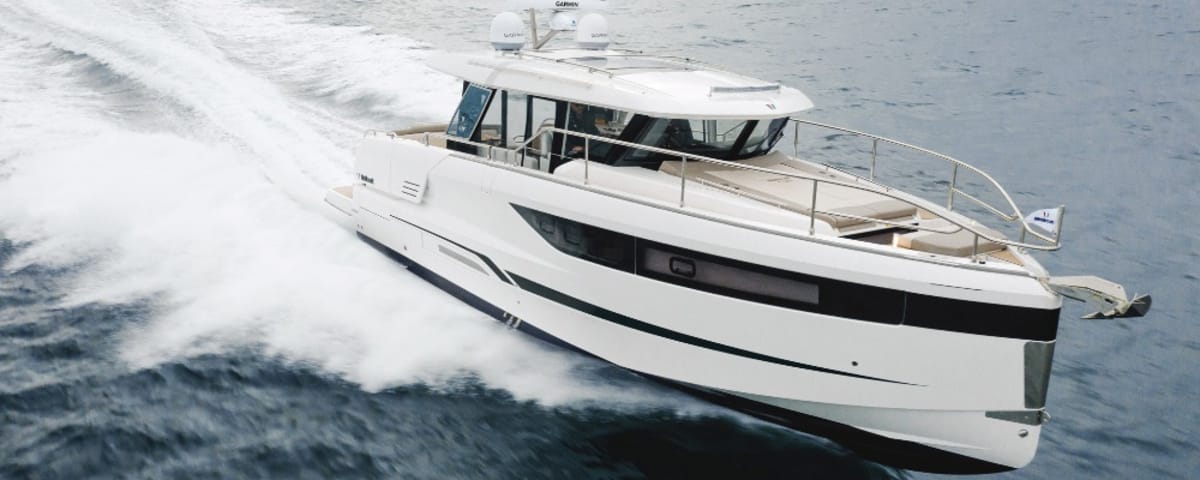Understanding the French Boating Tax and How to Avoid It
In France, a registration tax applies to pleasure boats registered in the country. However, certain types of boats are exempt from this tax. The key? Two major criteria must be met simultaneously:
- A hull length (LHT) less than or equal to 7 meters.
- An administrative power (fiscal horsepower, or CV fiscaux) of the engine less than 22 fiscal horsepower.
If these two conditions are met, the boat is exempt from the tax. Thus, a compact rigid inflatable boat (RIB) or a small sailboat allows for navigation without additional costs.
Examples of exempt boats:
- The Zodiac Cadet 310 Aero (3.1 m with a 6 hp engine).
- The First 18 SE by Bénéteau (5.55 m), a light and habitable sailboat.
Understanding the Calculation of Fiscal Horsepower
When it comes to motorboats, it is essential to differentiate between:
- Commercial power: expressed in horsepower (hp) or kilowatts (kW), this is the actual power of the engine.
- Fiscal horsepower (CV fiscaux): an administrative value calculated according to a formula taking into account the power and engine speed. This figure determines whether the boat is subject to the tax.
Formula for Calculating Fiscal Horsepower
The fiscal power (Pf) of an outboard motor is calculated as follows:
P f = 0.836 × (N0.16 × Pc1.48)
where:
Pc = commercial power in kW and N = maximum engine speed in revolutions per minute.
Concrete example:
A Yamaha 50 hp (37 kW) engine running at 5500 rpm:
P f = 0.836 × (55000.16 × 371.48) ≈ 13 fiscal horsepower
With 13 fiscal horsepower, this engine remains below the 22 fiscal horsepower mark and is therefore exempt from the tax.
Sailboats: Big Winners of the Exemption
Sailboats are rarely affected by the registration tax. Since their main propulsion is the sail, their auxiliary motorization generally remains below 22 fiscal horsepower.
Examples of exempt sailboats:
- Hobie Cat 16: sports catamaran without an engine.
- Dufour 1800 (6.6 m) and First 210 (6.4 m): small habitable sailboats with modest motorization.
On the other hand, a Sun Odyssey 410 (12.35 m), with a 40 fiscal horsepower engine, will be subject to the tax.
Rigid Inflatable Boats (RIBs): Pay Attention to Motorization
RIBs, very popular for their versatility, can easily remain exempt if their engine is well-sized. However, their tendency to be over-motorized can make them taxable.
Examples:
- Zodiac Medline 580 (5.8 m) with a 60 hp engine, approximately 15 fiscal horsepower = exempt.
- Highfield Sport 760 (7.6 m) with a 150 hp engine, approximately 34 fiscal horsepower = taxable.
The Alternative of Foreign Registration
Some boaters choose to register their boat under a foreign flag to escape French taxation. Among the popular options:
- Belgian flag: Long prized for its administrative flexibility, it has become less attractive since the 2019 reform.
- Dutch flag (Waterland or ICP): A simplified alternative, but which does not allow sailing beyond 3 months in France.
- Polish flag: Increasingly popular because it is accessible to non-residents and valid for life.
However, this solution involves risks:
If the boat is based in France or mainly sails in French waters, it could still be subject to the tax.
Foreign registration involves administrative formalities and can complicate the resale of the boat.
Which Boats to Choose to Avoid the Tax?
Here are strategic choices for sailing without taxation:
Exempt Sailboats
- Hobie Cat 16: light catamaran, without engine.
- First 18 SE: small habitable sailboat (5.55 m).
Exempt Motorboats
- Jeanneau Cap Camarat 4.7 CC: 4.65 m open boat, 50 hp engine (13 fiscal horsepower).
- Zodiac Cadet 360: compact RIB with a 6 hp engine.
Beware of borderline cases
A boat just over 7 meters or a slightly more powerful engine can tip you into taxation. It is therefore essential to check the specifications before buying.
In summary:
To sail without paying the registration tax in France:
- Choose a boat less than 7 meters.
- Opt for an engine of less than 22 fiscal horsepower.
- Favor light sailboats or exclusively sailing propulsion.
By following these recommendations, you can enjoy the pleasures of the sea while controlling your costs!
Enjoyed this post by Thibault Helle? Subscribe for more insights and updates straight from the source.


